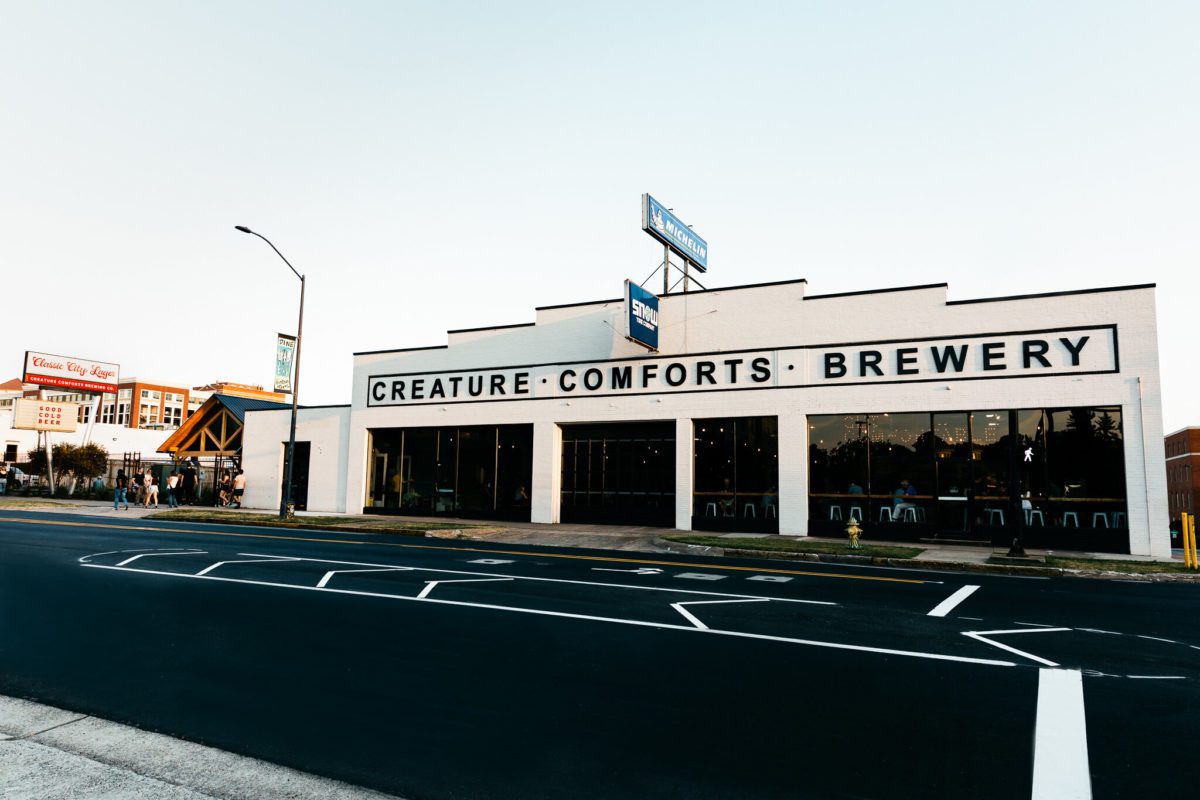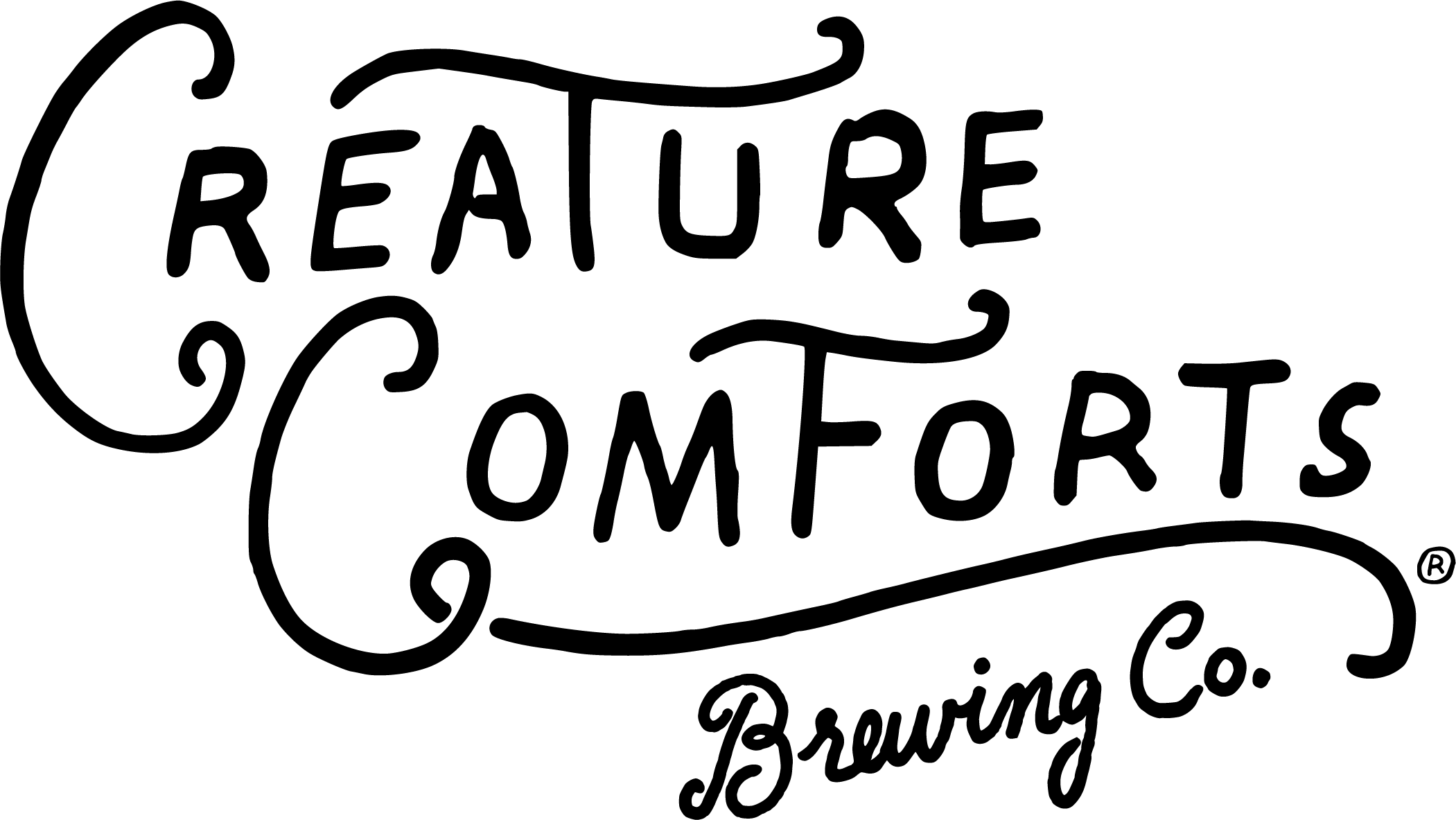A Letter To Our Staff From Our CEO

To the Creature Family,
I am struggling right now. Like many of you, I have been speaking to my friends across our communities, many of whom are on the ground and understand the racial dynamics of things occurring in our community, our industry, and our nation. I am grateful that through your community impact work, specifically Get Comfortable, that I have these contacts, some of whom are dear friends, that I can call and ask questions and get advice. For the sake of clarity, I have spoken with the following community leaders:
-
Jamie Scott (Director of Sparrow’s Nest),
-
Fenwick Broyard (Community Engagement with Clarke County School District),
-
Solomon Smothers (previously with Action Ministries, and now Co-Pastor of Lord of Glory Fellowship in Athens),
-
Dennis Byron (a.k.a Ale Sharpton, beer writer and brand influencer in Atlanta),
-
Life LaRoche (Director of Chess and Community)
Through these conversations I have gotten a lot of incredible advice, but perhaps the most tangible and challenging advice came from one of my lifelong friends, Brandon Lacey. When I asked what he would expect from a company like Creature, and perhaps more importantly, what he would expect from me as a friend, his answer was quite simple, “You should be going beyond the point that you are comfortable.” I have been uncomfortable in the past to use phrases like “the black community,” when writing or speaking, but it is important to address that this letter has been sparked specifically by the systemic injustice that the black community continues to face.
We must get uncomfortable. It makes total sense. To get our body stronger, we must push it beyond its comfort zone. To make our business grow, we must challenge it beyond its comfort zone. As a person, I need to be more uncomfortable. I need to be better at seeking to understand the inequity in our society and doing something to help. We must get uncomfortable before we can expect to see change in ourselves, or in Creature.
In my conversation with Solomon, he said “It is not more white companies and white voices that we need talking on the outside, it is the hearts of white companies and white people that we need changing on the inside.” My fellow Creatures, we are a white-dominated company, in a white-dominated industry. Creature should be a catalyst for change as it relates to diversity and inclusion in our industry, and the first place to start is at home, with ourselves. If we do not get our house in order, we cannot authentically influence others.
One other powerful piece of advice I got from Solomon was to “slow down, to just grieve with us, to sit in this moment of sadness, and not rush through it to solutions.” Grief is necessary. We need to stop and feel the pain of others. We need to sit in the sadness of what is going on in our country. We need to let the weight of this set in on our hearts. We should not rush to a quick resolution, but rather resolve to find a lasting solution.
Next, we must be vulnerable and ask for help and guidance from the right people because we clearly do not know and will not come to the right solution on our own. This is the hardest work because it cannot be solved through the stroke of a pen, a quick donation, or posting a three-bullet point “plan” on social media. It takes real dedication, humility, and openness. I am committed to the work, not just for myself or for our company, but for the communities of people who are still facing inequality.
At Creature, we always strive to do the right thing. Not the quick thing, not the popular thing, not the pressured thing, but the right thing. I can appreciate and understand the public pressures of the moment and the calls for reaction. However, we must balance the desire for a quick reaction with the need for the best response. The difference between reacting and responding is thought. Life LaRoche taught me that over a game of chess 4 years ago, and at Creature, we always want to respond well.
Our hope is not that people will look at Creature today and say, “They reacted well.” Our hope is far bigger than that. It is that people will look at Creature in 10 years and say, “Wow, they responded well, they effected real change, and they are on the right path to lead for the future.” Therefore, we are going to take a minute to listen and think, to ensure that this does not become a stagnant point in our company’s history, but rather a turning point in our company’s legacy. It is not about crafting a good external statement; it is about crafting a great internal change.
I would be remiss to not acknowledge one point that Life made, which was also echoed by all the other community leaders whom I spoke to this week. He said, “Creature did not need this moment to put you all in motion. You all have been doing great work in the community already through your impact programs, don’t forget that. Right now, many companies are trying to craft a message and develop a plan about how to get involved in their communities. You all are a step ahead. Just continue down that path, share your model with other companies, and continue to get better.” We can recognize how far we must go, while acknowledging the work that has been accomplished.
Creature’s community impact total in 6 years is $2,009,954.11. Most of our community impact nonprofit partners have been black and other minority-run organizations that serve the lives of minority communities. We also created an internal diversity and inclusion team, All Creatures, in 2018. Certainly, none of this erases our internal issues that have persisted and that exist currently, nor our responsibility to do more for these impacted communities and our craft beer industry. If you are new to Creature and do not know a lot about our heart for community impact, then please go to GetCurious.com. We are not starting from nothing; we are building upon something.
This is only the beginning. This letter is simply to say that we are paying attention, we are having conversations, we are listening, and we are following Solomon’s advice to sit in sadness, to grieve. Rest assured that we will do the work necessary to develop the right strategic response plan on how to be a part of the solution, on how to make it better. Time will be the judge of how we responded. If we look tomorrow how we look today, we will have failed as a company, and I will have failed as a leader.
With my most sincere sentiments,
Chris Herron
